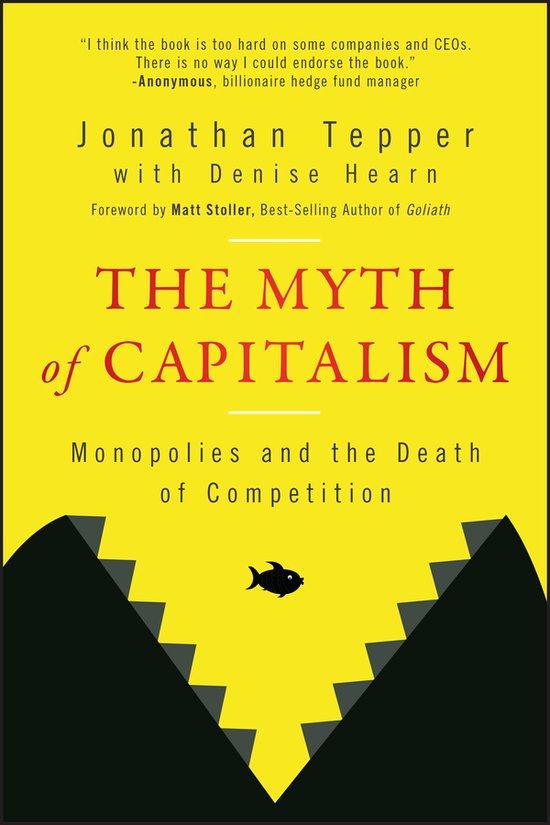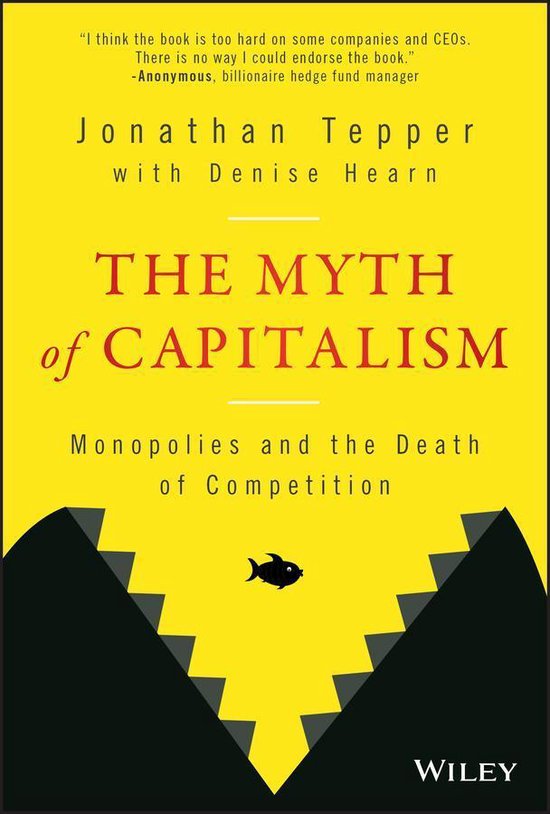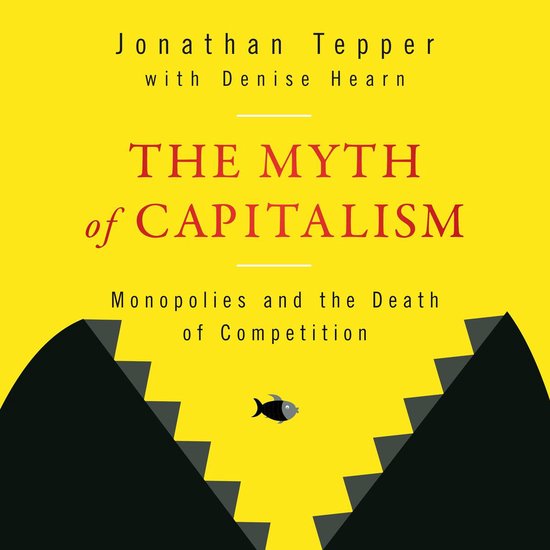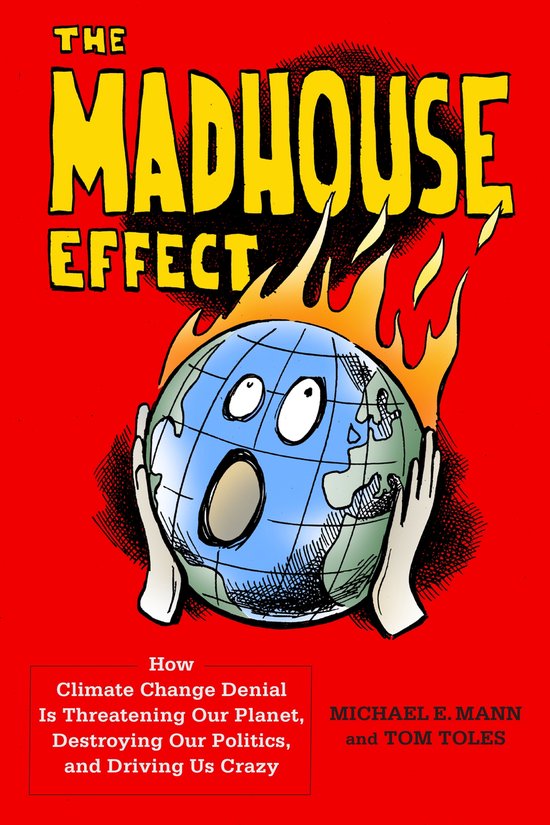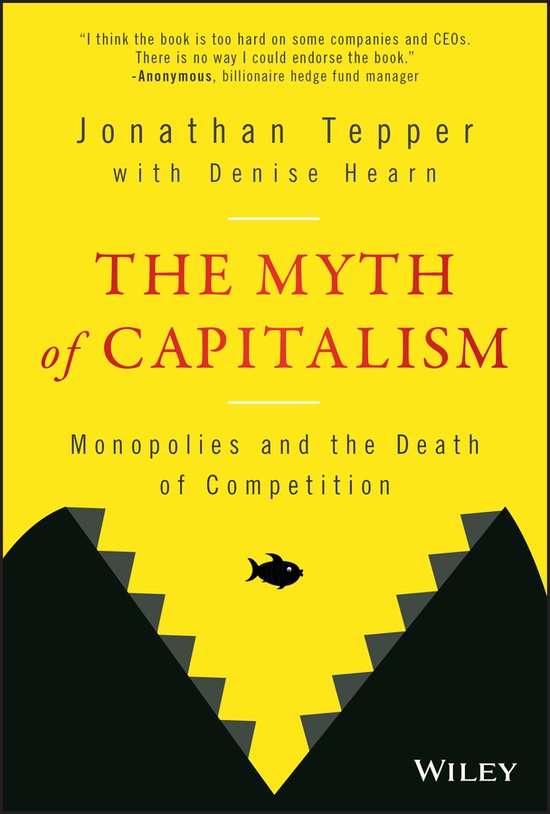
The Myth of Capitalism
Praise for The Myth of Capitalism
"'Capitalism without competition is not capitalism,' writes Jonathan Tepper in The Myth of Capitalism. He is right. After decades when most economists dismissed antitrust actions as superfluous so long as consumers were not the victims of price-gouging, we are slowly waking up to the reality that monopoly capitalism is back and it can be harmful even if its core products (as in the case of Google and Facebook) are free. But it's not just Big Tech that's killing competition. As Tepper shows in this engagingly written polemic, there's also excessive concentration in air travel, banking, beef, beer, health insurance, Internet access, and even the funeral industry. If you want to understand the real cause of rising inequality, discard Piketty and read Tepper instead. This is a tract for the times with a rare bipartisan appeal."
Niall Ferguson, Milbank Family Senior Fellow, the Hoover Institution, Stanford, and author of The Ascent of Money
"Tepper and Hearn have written an impressive and important book, documenting via their own research and that of many scholars, the very substantial increase in concentration on the supply side of US industry, leading to a decline in competition and a substantial shift in market and political power away from consumers and labor and toward the owners of capital. The consequences extend to rising inequality, slowing productivity growth, and shifts in the pattern of regulation in favor of corporations. Pieces of these growth patterns have been described before. But this book uniquely pulls it all together. One hopes that it will have the impact that it clearly deserves."
Michael Spence, Economics professor at Stern School of Business NYU, Nobel Prize in Economics (2001)
"What's wrong with American capitalism today? Why is it so good for the elite, and so bad for everyone else? Is inequality the problem? Tepper and Hearn make the case that inequality is the symptom, not the disease. The problem is too little competition, not too much. They provide an immensely readable and persuasive account, superbly well-informed by a mass of recent data and research."
Sir Angus Deaton, Princeton University, Nobel Prize in Economics (2015)
"A broad-ranging and deeply-researched analysis of the inexorable growth of monopolies and oligopolies over the past four decades. Tepper makes a compelling case that the government's failure to reign in tech titans and other corporate behemoths is at the root of perhaps the most troubling macroeconomic trends of our time, including rising inequality and slowing productivity. Clear and highly accessible, the book takes no prisoners, arguing that monopolists' funding and sloppy thinking has corrupted every aspect of the system, from politicians to regulators to academics."
Kenneth Rogoff, Thomas D. Cabot Professor of Public Policy and Professor of Economics at Harvard University, author of the bestselling book, This Time is Different
The Myth of Capitalism tells the story of how America has gone from an open, competitive marketplace to an economy where a few very powerful companies dominate key industries that affect our daily lives. Digital monopolies like Google, Facebook and Amazon act as gatekeepers to the digital world. Amazon is capturing almost all online shopping dollars. We have the illusion of choice, but for most critical decisions, we have only one or two companies, when it comes to high speed Internet, health insurance, medical care, mortgage title insurance, social networks, Internet searches, or even consumer goods like toothpaste. Every day, the average American transfers a little of their pay check to monopolists and oligopolists. The solution is vigorous anti-trust enforcement to return America to a period where competition created higher economic growth, more jobs, higher wages and a level playing field for all. The Myth of Capitalism is the story of industrial concentration, but it matters to everyone, because the stakes could not be higher. It tackles the big questions of: why is the US becoming a more unequal society, why is economic growth anemic despite trillions of dollars of federal debt and money printing, why the number of start-ups has declined, and why are workers losing out.
| Auteur | | Jonathan Tepper |
| Taal | | Engels |
| Type | | Hardcover |
| Categorie | | Economie & Financiën |
